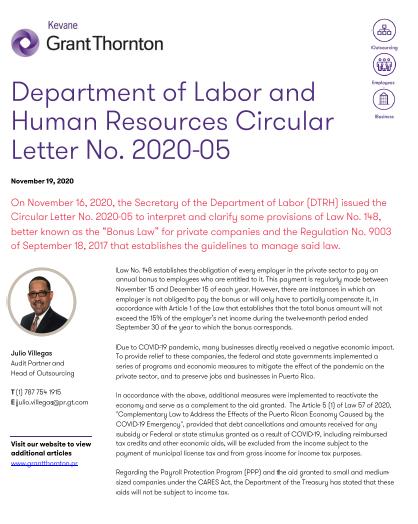-
Financial statements audits
Financial statement audits
-
Compliance audits
Compliance audits
-
Compilations and reviews
Compilations and audit
-
Agreed-upon procedures
Agreed-upon procedures
-
Corporate and business tax
Our trusted teams can prepare corporate tax files and ruling requests, support you with deferrals, accounting procedures and legitimate tax benefits.
-
International tax
Our teams have in-depth knowledge of the relationship between domestic and international tax laws.
-
Tax compliance
Business Tax
-
Individual taxes
Individual taxes
-
Estate and succession planning
Estate and succession planning
-
Global mobility services
Through our global organisation of member firms, we support both companies and individuals, providing insightful solutions to minimise the tax burden for both parties.
-
Sales and use tax and indirect taxes
SUT/ VAT & indirect taxes
-
Tax incentives program
Tax incentives program
-
Transfer Pricing Study
The laws surrounding transfer pricing are becoming ever more complex, as tax affairs of multinational companies are facing scrutiny from media, regulators and the public
-
Business consulting
Our business consulting services can help you improve your operational performance and productivity, adding value throughout your growth life cycle.
-
Forensic and investigative services
At Grant Thornton, we have a wealth of knowledge in forensic services and can support you with issues such as dispute resolution, fraud and insurance claims.
-
Fraud and investigations
The commercial landscape is changing fast. An ever more regulated environment means organizations today must adopt stringent governance and compliance processes. As business has become global, organizations need to adapt to deal with multi-jurisdictional investigations, litigation, and dispute resolution, address the threat of cyber-attack and at the same time protect the organization’s value.
-
Dispute resolutions
Our independent experts are experienced in advising on civil and criminal matters involving contract breaches, partnership disputes, auditor negligence, shareholder disputes and company valuations, disputes for corporates, the public sector and individuals. We act in all forms of dispute resolution, including litigation, arbitration, and mediation.
-
Business risk services
We can help you identify, understand and manage potential risks to safeguard your business and comply with regulatory requirements.
-
Internal audit
We work with our clients to assess their corporate level risk, identify areas of greatest risk and develop appropriate work plans and audit programs to mitigate these risks.
-
Service organization reports
As a service organization, you know how important it is to produce a report for your customers and their auditors that instills confidence and enhances their trust in your services. Grant Thornton Advisory professionals can help you determine which report(s) will satisfy your customers’ needs and provide relevant information to your customers and customers’ auditors that will be a business benefit to you.
-
Transaction advisory services
Transactions are significant events in the life of a business – a successful deal that can have a lasting impact on the future shape of the organizations involved. Because the stakes are high for both buyers and sellers, experience, determination and pragmatism are required to bring deals safely through to conclusion.
-
Mergers and acquisitions
Globalization and company growth ambitions are driving an increase in M&A activity worldwide as businesses look to establish a footprint in countries beyond their own. Even within their own regions, many businesses feel the pressure to acquire in order to establish a strategic presence in new markets, such as those being created by rapid technological innovation.
-
Valuations
We can support you throughout the transaction process – helping achieve the best possible outcome at the point of the transaction and in the longer term.
-
Recovery and reorganization
We provide a wide range of services to recovery and reorganisation professionals, companies and their stakeholders.
Law No. 148 establishes the obligation of every employer in the private sector to pay an annual bonus to employees who are entitled to it. This payment is regularly made between November 15 and December 15 of each year. However, there are instances in which an employer is not obliged to pay the bonus or will only have to partially compensate it, in accordance with Article 1 of the Law that establishes that the total bonus amount will not exceed the 15% of the employer’s net income during the twelve-month period ended September 30 of the year to which the bonus corresponds.
Due to COVID-19 pandemic, many businesses directly received a negative economic impact. To provide relief to these companies, the federal and state governments implemented a series of programs and economic measures to mitigate the effect of the pandemic on the private sector, and to preserve jobs and businesses in Puerto Rico.
In accordance with the above, additional measures were implemented to reactivate the economy and serve as a complement to the aid granted. The Article 5 (1) of Law 57 of 2020, "Complementary Law to Address the Effects of the Puerto Rican Economy Caused by the COVID-19 Emergency", provided that debt cancellations and amounts received for any subsidy or Federal or state stimulus granted as a result of COVID-19, including reimbursed tax credits and other economic aids, will be excluded from the income subject to the payment of municipal license tax and from gross income for income tax purposes.
Regarding the Payroll Protection Program (PPP) and the aid granted to small and medium-sized companies under the CARES Act, the Department of the Treasury has stated that these aids will not be subject to income tax.
Given the current state of law, the DTRH clarifies how will be the treatment of these economic aids received during the pandemic with the evaluation of the financial statements that employers must present for the exemption of the bonus payment. This interpretation establishes that the economic incentives that have been granted to alleviate the effects of the pandemic, debt cancellations and amounts received from any federal or state subsidy or stimulus granted as a result of COVID-19, including reimbursed tax credits and other economic aid, by themselves; will not be considered as income for purposes of the definition of "net profit" in the exemption of the bonus required according to Law 148. Likewise, employers may claim as a deduction from net income, the ordinary and necessary expenses incurred in the operation of the business, even when they have been paid with funds received from any federal or state subsidy. However, if these government aids were used to alleviate any extraordinary loss, this must be stated in the financial statements that are presented to the DTRH. That is, for purposes of bonus exemption, the employer may not claim as loss or extraordinary loss those that were paid with funds received from any federal or state subsidy.
The employers have until Monday, November 30, 2020, to send by regular mail, the original documents needed for the request of exemption of bonus payment.
This Circular Letter is limited to the power of the Secretary of Labor to interpret the provisions of Law No. 148 and applies only to the administrative processes in the DTRH for the evaluation of requests for exemption of the bonus required by law. Therefore, it does not affect in any way the interpretation and jurisdiction of other agencies regarding financial and tax matters under any other state or federal law.
Links
Contact our Outsourcing department should you need help with this or any other accounting matter. At Kevane Grant Thornton we provide our clients with personalized attention, valuable advice and recommendations, tailored solutions, and direct access to technical experts to help clients resolve issues and identify opportunities.


